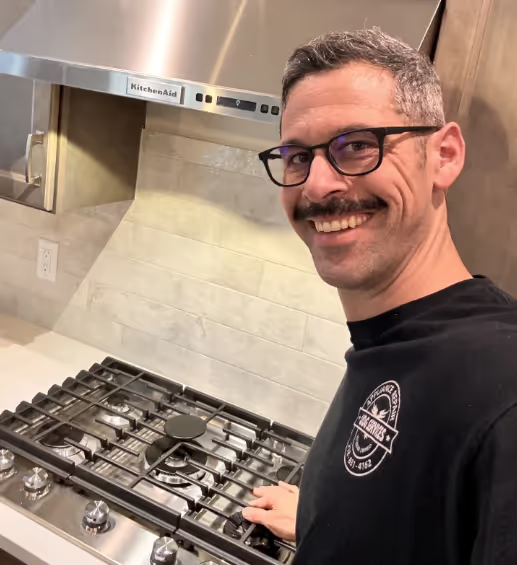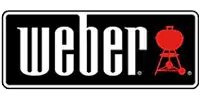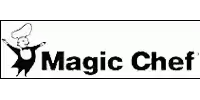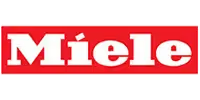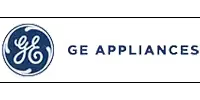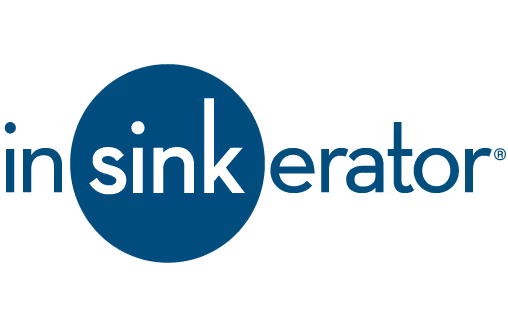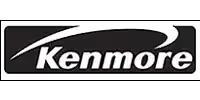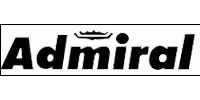Commercial kitchens run on equipment that works—ovens that heat accurately, refrigeration that maintains temperature, and fryers that perform consistently. When kitchen equipment fails, your entire operation feels it. UDG Services provides the expert repair and maintenance that West Michigan commercial kitchens depend on.
Complete Kitchen Equipment Service
We service all types of commercial kitchen equipment: ovens and ranges, fryers and griddles, refrigerators and freezers, walk-in coolers, prep tables, dishwashers, ice machines, and more. Whatever your kitchen uses, we have the expertise to maintain and repair it.
Understanding Kitchen Operations
Commercial kitchen equipment operates under demanding conditions—high temperatures, continuous use, and tight schedules. Our technicians understand these demands and how to keep equipment performing reliably despite heavy use.
Emergency Response
Equipment failures during service mean lost revenue and unhappy customers. We provide emergency service because we understand that a broken fryer during dinner rush is a genuine crisis. Our goal is getting your kitchen operational again quickly.
Preventive Maintenance
Most kitchen equipment failures are preventable. Our maintenance programs include scheduled inspections and service that catch problems early—before they cause mid-shift breakdowns. Regular maintenance costs far less than emergency repairs.
Health Code Compliance
Properly functioning equipment is a health code requirement. Our service helps ensure your kitchen meets compliance standards, and we provide documentation for inspection purposes.
For commercial kitchen equipment repair and maintenance throughout West Michigan, trust UDG Services.
Operating a commercial kitchen requires reliable equipment to maintain smooth daily operations. When commercial kitchen equipment malfunctions, it can significantly disrupt service and impact your bottom line. Understanding commercial kitchen equipment repair and maintenance is essential for restaurant owners, caterers, and foodservice operators throughout West Michigan. This comprehensive guide covers the importance of prompt equipment repairs, common equipment issues, preventative maintenance strategies, and how professional repair services can minimize downtime and extend equipment lifespan.
Signs Your Commercial Kitchen Equipment Needs Repair
Recognizing early warning signs of equipment failure can prevent costly breakdowns and safety hazards. Contact a professional commercial appliance repair technician if your commercial kitchen equipment exhibits any of these symptoms:
- Unusual noises during operation (grinding, squealing, or rattling sounds)
- Strange odors or burning smells indicating electrical or mechanical issues
- Decreased performance or inconsistent temperature control
- Visible damage, worn components, or fluid leaks
- Increased energy consumption or higher utility bills
- Frequent cycling or failure to start properly
Don't wait for complete equipment failure—early intervention can save time, money, and prevent food safety issues in your commercial kitchen.
Types of Commercial Kitchen Equipment We Repair in West Michigan
Professional commercial appliance repair services handle a comprehensive range of foodservice equipment, including:
- Cooking Equipment: Commercial ovens, ranges, griddles, deep fryers, and broilers
- Refrigeration Units: Walk-in coolers, reach-in refrigerators, commercial freezers, and ice machines
- Dishwashing Systems: Commercial dishwashers, glasswashers, and sanitizing equipment
- Food Preparation Equipment: Commercial mixers, slicers, food processors, and prep tables
- Ventilation Systems: Exhaust hoods, ventilation fans, and HVAC units
Benefits of Professional Commercial Kitchen Equipment Repair
Partnering with experienced commercial appliance repair technicians offers numerous advantages for your foodservice operation:
- Extended Equipment Lifespan: Professional repairs and regular maintenance maximize your equipment investment and ROI
- Improved Efficiency: Well-maintained equipment operates at peak performance, reducing energy costs and utility expenses
- Enhanced Safety: Proper repairs prevent fire hazards, gas leaks, and other safety risks in commercial kitchens
- Minimized Downtime: Fast, reliable repairs get your kitchen back to full operation quickly, reducing revenue loss
- Code Compliance: Professional service ensures equipment meets health department and safety regulations
- Expert Diagnostics: Trained technicians accurately identify issues and provide cost-effective solutions
The Importance of Preventative Maintenance for Commercial Kitchens
Regular preventative maintenance is the most cost-effective strategy for commercial kitchen equipment management. Scheduled inspections, cleaning, and tune-ups help:
- Identify potential problems before they cause equipment failure or breakdowns
- Reduce emergency repair costs and unexpected downtime
- Maintain manufacturer warranties and equipment certifications
- Ensure consistent food quality and safety standards
- Optimize energy efficiency and reduce operating costs
- Extend the useful life of expensive commercial equipment
Implementing a comprehensive preventative maintenance program protects your investment and keeps your commercial kitchen running smoothly year-round.
Emergency Commercial Kitchen Equipment Repair Services
Equipment failures don't follow a schedule. Emergency repair services provide rapid response when critical equipment breaks down, including:
- 24/7 availability for urgent commercial equipment repairs
- Same-day and next-day service appointments
- Weekend and holiday emergency support
- Priority response for refrigeration and food safety issues
- Fast diagnosis and repair to minimize business disruption
Quick emergency repairs minimize revenue loss and prevent food spoilage during unexpected equipment failures in your commercial kitchen.
What Our West Michigan Customers Say
"Nick came out within 24 hours to diagnose a problem with our Bosch dishwasher. He quickly diagnosed the problem, listening carefully to the history we gave. He recommended that it would probably be more financially expedient to replace it. We asked him to recommend a brand and a place to buy it. He even looked it up online for us."
— Kathleen W., West Michigan
"UDG did an amazing job repairing multiple malfunctioning appliances. Highly recommend!"
— Evan B., West Michigan
"We have utilized Greg's service on several occasions, and have referred him to friends. He is very personable. Greg provides a variety of services capably. Positive: Responsiveness, Punctuality, Quality, Professionalism, Value"
— Karla S., West Michigan
Schedule Your Commercial Kitchen Equipment Repair Today
UDG Services provides fast, reliable commercial and residential appliance repair throughout West Michigan. As a Veteran-owned business, we bring military precision and dedication to every job—backed by our warranty and 90%+ first-visit completion rate.
Serving: Muskegon, Grand Haven, Norton Shores, Spring Lake, Fruitport, Holland, and communities throughout West Michigan.
Book a service call today—we'll take it from here.
Frequently Asked Questions About Commercial Kitchen Equipment Repair
How do I know if my commercial kitchen equipment needs repair?
If your commercial kitchen equipment exhibits unusual sounds, strange odors, reduced performance, visible damage, or fluid leaks, it's time to contact a professional repair technician. Early diagnosis prevents complete equipment failure and costly emergency repairs.
Why is prompt commercial kitchen equipment repair important?
Fast equipment repairs are critical because malfunctioning equipment disrupts kitchen operations, causes revenue loss, creates food safety risks, and can lead to health code violations. Prompt professional repairs minimize downtime and restore normal operations quickly.
What types of commercial kitchen equipment can be repaired?
Professional repair services handle all commercial foodservice equipment including cooking appliances (ovens, ranges, fryers), refrigeration units (coolers, freezers, ice machines), dishwashing systems, food preparation equipment, and ventilation systems.
What are the benefits of hiring a professional for commercial equipment repairs?
Professional technicians extend equipment lifespan, improve operational efficiency, ensure safety compliance, provide accurate diagnostics, and deliver reliable repairs. Their expertise minimizes downtime and protects your equipment investment.
How do I choose a reliable commercial kitchen equipment repair company in West Michigan?
Select a repair service with experienced, certified technicians, emergency service availability, positive customer reviews, transparent pricing, and strong warranties. Look for companies specializing in commercial foodservice equipment with proven track records in your area.
What is preventative maintenance and why is it important for commercial kitchens?
Preventative maintenance includes regular inspections, cleaning, and tune-ups that identify potential problems before equipment fails. This proactive approach extends equipment life, reduces emergency repair costs, maintains warranties, and ensures consistent performance.
What are emergency commercial kitchen equipment repair services?
Emergency repair services provide rapid response for critical equipment failures, including 24/7 availability, same-day service, and weekend/holiday support. These services minimize business disruption and prevent food spoilage during unexpected breakdowns.
How much do commercial kitchen equipment repairs typically cost?
Repair costs vary based on equipment type, problem severity, and required parts. However, investing in preventative maintenance and prompt repairs is significantly more cost-effective than emergency breakdowns or premature equipment replacement.
Frequently Asked Questions About Commercial Kitchen Equipment Repair
How do I know if my commercial kitchen equipment needs repair?
If your commercial kitchen equipment exhibits unusual sounds, strange odors, reduced performance, visible damage, or fluid leaks, it's time to contact a professional repair technician. Early diagnosis prevents complete equipment failure and costly emergency repairs.
Why is prompt commercial kitchen equipment repair important?
Fast equipment repairs are critical because malfunctioning equipment disrupts kitchen operations, causes revenue loss, creates food safety risks, and can lead to health code violations. Prompt professional repairs minimize downtime and restore normal operations quickly.
What types of commercial kitchen equipment can be repaired?
Professional repair services handle all commercial foodservice equipment including cooking appliances (ovens, ranges, fryers), refrigeration units (coolers, freezers, ice machines), dishwashing systems, food preparation equipment, and ventilation systems.
What are the benefits of hiring a professional for commercial equipment repairs?
Professional technicians extend equipment lifespan, improve operational efficiency, ensure safety compliance, provide accurate diagnostics, and deliver reliable repairs. Their expertise minimizes downtime and protects your equipment investment.
How do I choose a reliable commercial kitchen equipment repair company in West Michigan?
Select a repair service with experienced, certified technicians, emergency service availability, positive customer reviews, transparent pricing, and strong warranties. Look for companies specializing in commercial foodservice equipment with proven track records in your area.
What is preventative maintenance and why is it important for commercial kitchens?
Preventative maintenance includes regular inspections, cleaning, and tune-ups that identify potential problems before equipment fails. This proactive approach extends equipment life, reduces emergency repair costs, maintains warranties, and ensures consistent performance.
What are emergency commercial kitchen equipment repair services?
Emergency repair services provide rapid response for critical equipment failures, including 24/7 availability, same-day service, and weekend/holiday support. These services minimize business disruption and prevent food spoilage during unexpected breakdowns.
How much do commercial kitchen equipment repairs typically cost?
Repair costs vary based on equipment type, problem severity, and required parts. However, investing in preventative maintenance and prompt repairs is significantly more cost-effective than emergency breakdowns or premature equipment replacement.



